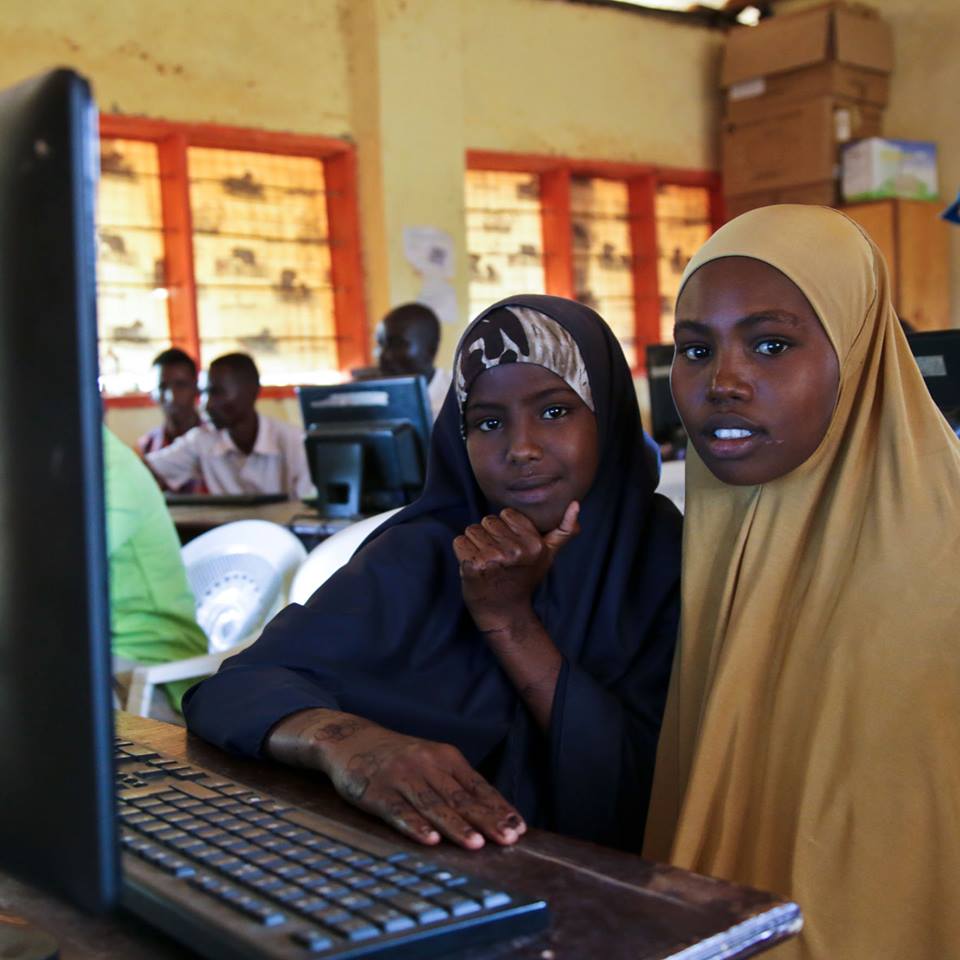ICT skills for world’s largest refugee camp
By Akhtar Badsah, Microsoft senior director of citizenship and public affairs
Image courtesy of UNHCR Innovation/R. Nuri
 Dadaab, Kenya, is home to nearly half a million Somali refugees. For many, the walls of a refugee camp are the only life they have ever known. But education and skills development can break down these barriers, with technology as the catalyst. This is why I am delighted to announce the official launch of the Dadaab Community Technology Access Centre (CTA), a Microsoft collaboration with the United Nations Refugee Agency (UNHCR), to bring technology access and training to young refugees.
Dadaab, Kenya, is home to nearly half a million Somali refugees. For many, the walls of a refugee camp are the only life they have ever known. But education and skills development can break down these barriers, with technology as the catalyst. This is why I am delighted to announce the official launch of the Dadaab Community Technology Access Centre (CTA), a Microsoft collaboration with the United Nations Refugee Agency (UNHCR), to bring technology access and training to young refugees.
The launch is a culmination of two years’ worth of efforts and I applaud the Microsoft Kenyan office, which has worked closely with UNHCR Innovation on the ground to bring the Centre and our initial investment to life. UNHCR has been a long-term partner of Microsoft since 1999, our first public-private partnership with an international organization. Since then, we have developed a range of innovative solutions like the CTA programme to address the many needs of refugee communities around the world.
Already in Dadaab, 214 computers are being distributed to 39 schools and four vocational centres in the region, effectively increasing formal access by 100% in schools and doubling the number of available computers to vocational learners. These resources will equip students with ICT skills and provide access to a world of knowledge on educational subjects. Computer studies have therefore become a highly valued and demanded course in the community. In just one week, as many as 145 secondary school students will enroll in IT skills classes. Over 800 vocational students have already registered for the 2013 curriculum, and there have been requests for advanced IT courses to become available.
To support this uptake, a ‘Train-the-Trainer’ programme has been initiated to help teachers provide high-quality, community-based tuition. To date, 863 individuals have been trained and many teachers are young refugees themselves. ‘Train-the-Trainer’ also provides community ownership, which is essential for sustainability. And sustainability is the heart of any project’s success!
Sustainability, long-term relationships and engagement are at the heart of our partnerships. We believe it is critical to build the capacity of local individuals by bringing the knowledge, talent and skills of our Microsoft employees to NGOs and communities. And it’s not a one-sided transaction – using the skills they learn, these communities will help stimulate local economies and fuel economic development in Kenya, benefiting everyone. This scenario is at the heart of our recently launched 4Afrika Initiative, which is built on the belief that technology can accelerate growth for Africa, and in turn, Africa can also accelerate technology for the world. And just a few months after launch, we’ve already formed strong partnerships to help facilitate this, such as our recent collaboration with the Tanzania Commission for Science and Technology (COSTECH) and local internet service provider UhuruOne, in a TV white spaces project to increase low-cost wireless broadband access.
In Dadaab, we have ensured that each school and the Centre, has a sustainability and livelihood plan. Several schools are offering additional training programmes after hours, where they will charge a small fee, giving them a sense of ownership, generating a flair for business, and providing more learning opportunities.
At Microsoft, our belief is firm in the possibilities that technology offers nations and individuals as they emerge on the world stage. Our BizSpark, YouthSpark, and DreamSpark programmes are some of the ways in which we are upskilling, mentoring, and creating business and employment opportunities for thousands of people through ICT. For refugees, access to a computer and the internet can change their life, open their minds, and spark dreams for the future. With the CTA, the youth of Dadaab will gain more than digital literacy; they will gain access to livelihoods. Together with the UNHCR, our long-standing partners, we aim to embrace refugees as part of the worldwide community’s technology movement and support ICT education and learning in challenging environments.